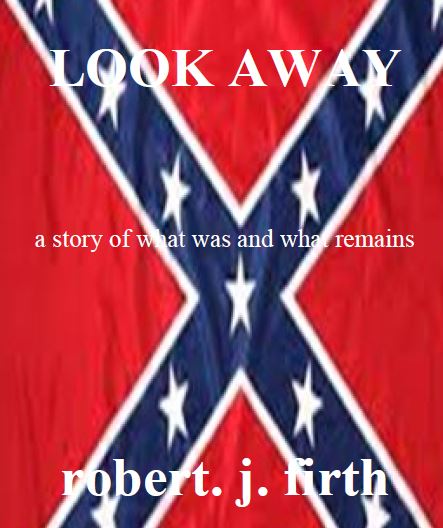|
Books
Worth Reading |
|
* |
|
...
LOOK AWAY Forward
Look Away is a book I've wanted to write since I was 14. The school took
a bunch of us kids to Gettysburg. I had read stories about the battle
fought there and we were studying Lincoln's Gettysburg Address. It was
about twilight when the shadows of the trees were
creeping
across the mowed field where Pickett had sent his men to slaughter.
I was standing there alone, thinking of how terrible it must have been, when a young man dressed like a Confederate soldier appeared in front of me. I hadn't heard him coming. He looked just as real as you or me. At first I thought he was. I said, "Hi, do you work here?" He didn't move, didn't speak, just looked at me. It could have been: 30 seconds or 30 minutes... time was frozen. At 14, I didn't understand. The image shifted and waivered, finally evaporating. I remained a few minutes trying to figure out who or what he or it was. As I grew up and went on to university of course, I understood that what I had seen was one of the many ghosts of Gettysburg. Hundreds of people visiting the battlefield have had similar experiences. But, the story doesn't end just there. Over these many years, "he" has returned several times. The last was about ten years ago when I was flying a DC-6 with 40,000 lbs of salmon from Dillingham back to Anchorage. It was dark and, in the glow of the instruments, his face was reflected on the windshield... What does he want? Maybe, he wants me to write this book? Most Americans, at least those born here before 1960, know the history of our Civil War but, what is generally not known- is why; why really the soldiers on both sides fought and died. Over the four years of bloody conflict some 690,000 young men from both sides lost their lives. That's an average of 14,375 every month and 479 a day. What were they so angry about that they were ready to give their lives for the cause- what cause? The popular myth is that it was all about abolishing slavery, but, as we show, that had little to do with the war. This book does not sugar-coat slavery and is certainly no mea culpa or apology for the whites of the time enslaving African blacks. They did it because they could and because the primitive and ignorant blacks couldn't stop them. We describe the situation then as it was and today, as it is. To do otherwise would be to commit literary fraud. At the start of the conflict America's population totaled about 31 million with some 9 million in the south (counting the 3 million black slaves) and 22 million in the north. Once the war was underway, the Union had about 2.6 million men under arms facing about 1.6 million in the Army of the Confederate States. If you posit that each soldier on both sides cost their government in those times about $1.00 a day, the North was paying out $78 million a month while the South had to pony up some $48 million. The total cost for both sides over the 4 years was about $6 billion which, in today's money, would be $168 billion. Placing a dollar cost on the 690,000 dead soldiers of both sides, works out to about $8,000 a head. In 2019 money, that's $224,000 America spent to kill each one of her young sons. We have been told that the war was about slavery. The North didn't want Americans to own slaves while the southerners needed them to work their vast and very profitable agricultural industries. This might explain why the 150 owners of the huge plantations wanted to fight but, what about the other 1.6 million Southern boys, none of whom ever owned a slave? What would motivate a 20 year old young man, living on his family farm in Macon Georgia, to join up with Jeff Davis's new Government and go off to kill other young men from New Jersey whom he had never met? That's a good question. In 1861 news was slow. The only way anyone knew anything about anything was by reading it in a newspaper or being told by someone who had read a paper. So, how would a newspaper in Macon Georgia know anything about a declaration of war in Washington DC? Samuel F. B. Morse in the 1840's invented the telegraph. Using Morse code one could send by hard-wire any message to anyone who was connected. By 1861 every town in the country had a telegraph station. The telegraph operator in Macon was receiving messages every day from Washington long before the war started. It's safe to say that everyone in the entire state of Georgia (and all the other states in the country) understood what was being argued and decided in Congress. So, how heated did the arguments get? Pretty damned heated! On May 22, 1856, five years before war broke out, Southern Congressman Preston Brooks, (South Carolina) who owned a large plantation and a bunch of slaves, took his heavy oak cane and beat the hell out of Northern Senator Charles Sumner, a passionate abolitionist, over the issue of slavery. Interestingly, Brooks dies in 1859 of pneumonia so never lives to see the beginning of the war or the end of Slavery and, of course, the end of the southern plantation way of life. The House Committee on Ethics, deciding that beating the shit out of another senator in the halls of Congress was not good etiquette, censured Brooks who resigned- but was immediately reelected. However, as we said, in 1859 he died at age 37. Sumner, who was severely beaten, recovered slowly and eventually returned to congress. He survived the war, passing in 1874 at age 64 from a heart Attack. The War changed America and, as we see today, probably for the worse. What one has to recognize is that the war, on the Northern side at least, was all about keeping the union together- not to free the slaves! Why did the Southerners fight? The vast majority of the young Sons of the South who went out to do battle with the hated Yankees had never owned a slave. They were angry because the Northerners were trying to tell them how to live their lives. They wanted the Yankee Sons of Bitches to get the hell out of the South and mind their own damned business! The Civil War started as a war of words and was ended by the roar of cannon. The final shots were fired in 1865 after four years of catastrophic slaughter and destruction. The military war ended mainly because the industrial and manpower resources of the North were far superior to those of the South. In point of fact, for many southerners, the anger and hatred that fueled the resolve of the Confederate soldier has never ended. In many significant ways, the old South never recovered from the war. In this book, we discuss this and other aspects of the pre and post-war South.
Robert J. Firth
To Purchase This Book on AMAZON
To Purchase This Book with PAY-PAL
|
|
Copyright (c) Robert J. Firth. 2004-2021 | Contact Us www.Books@Robert-J-Firth.com |

